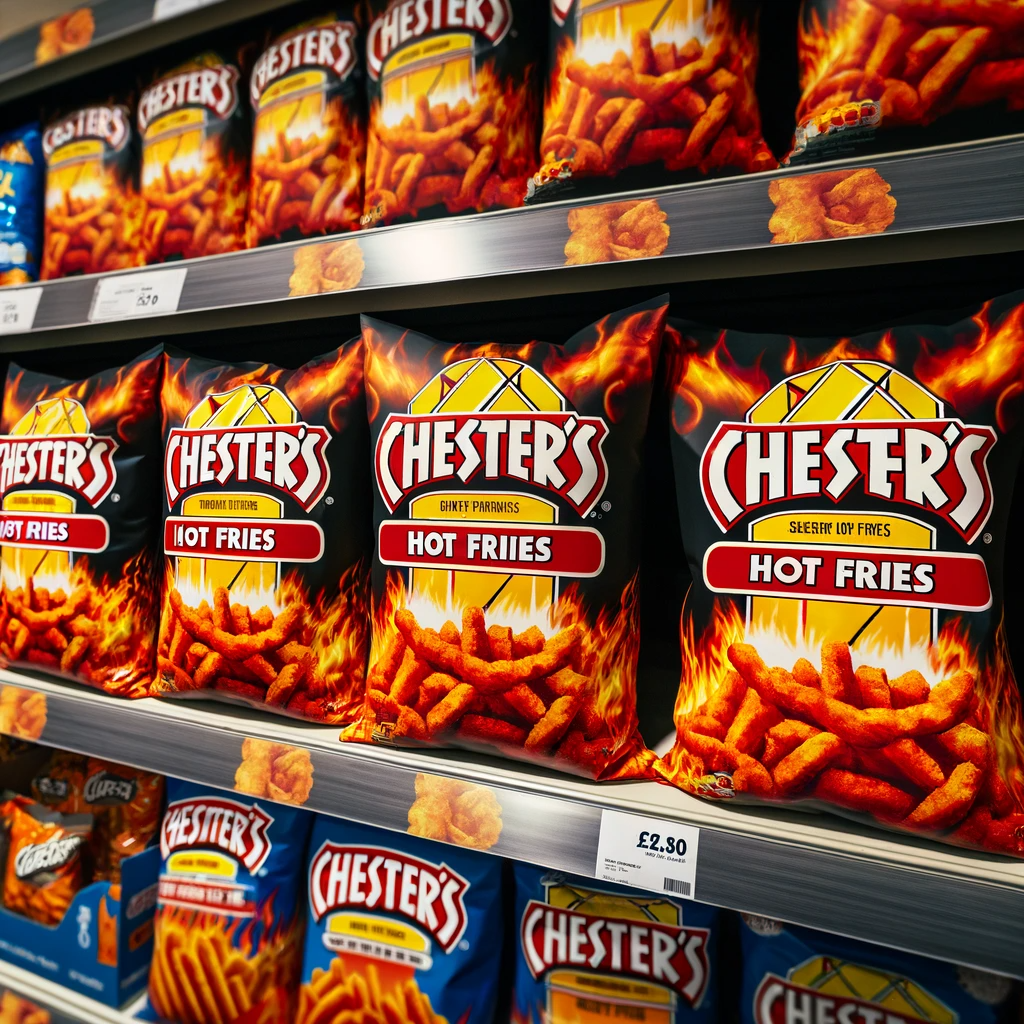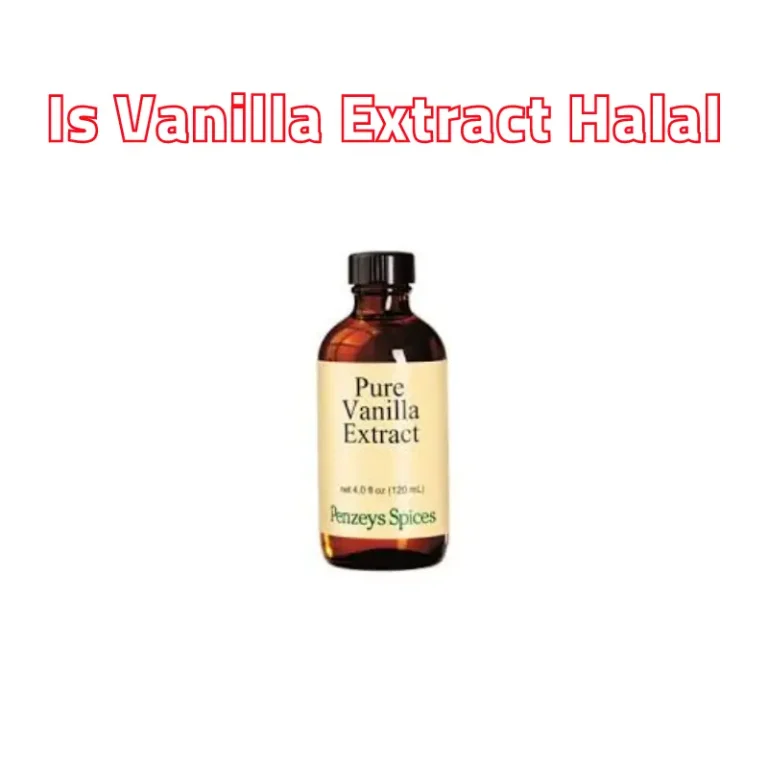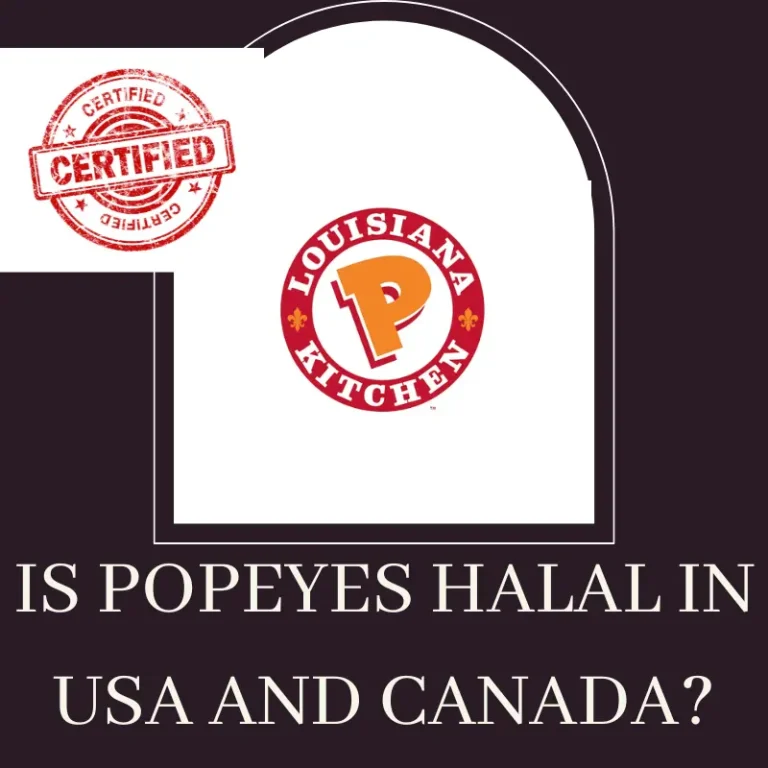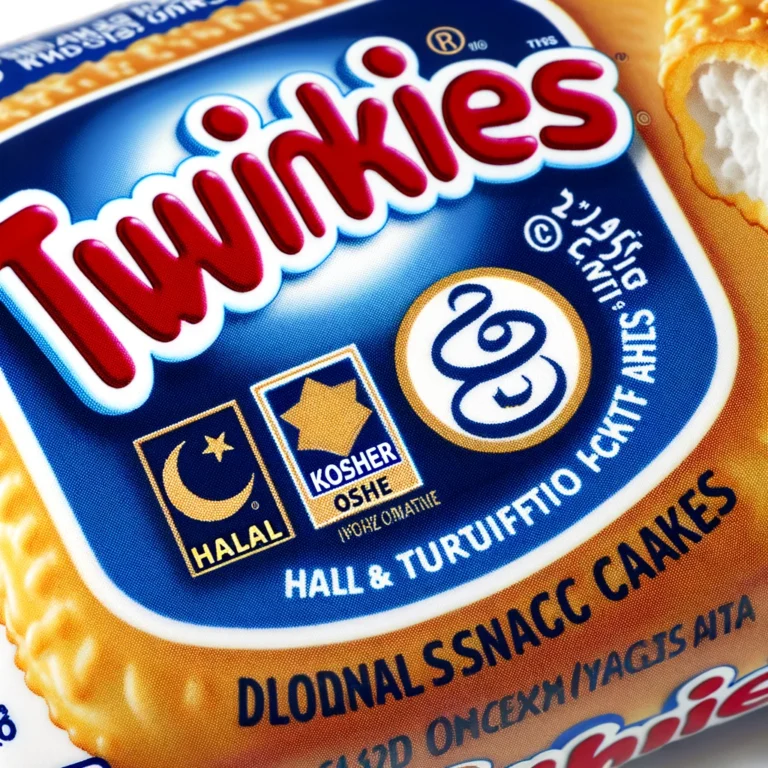Are Chester’s Hot Fries Halal?
Chester’s hot fries have become an iconic spicy snack across America. Their unique flavor, crunchy texture, and intense heat make them a popular choice for those who love bold snacks.
But an important question for many consumers is: are Chester’s hot fries actually halal?
As the Muslim population grows in the United States and around the world, more attention is being paid to whether various food products conform to the dietary restrictions set forth by Islamic law. This article will explore this topic in depth.
Overview of Chester’s Hot Fries
Chester’s hot fries are a brand of hot and spicy snack chips/crisps manufactured by Wise Foods. Some key details about Chester’s hot fries include:
- Ingredients – Potatoes, vegetable oil (contains one or more of the following: corn, cottonseed, sunflower, soybean and/or canola oil), seasoning (maltodextrin, salt, cheddar cheese [pasteurized milk, cheese cultures, salt, enzymes], whey, wheat flour, monosodium glutamate, romano cheese [part skim cow’s milk, cheese cultures, salt, enzymes], whey protein concentrate, onion powder, corn flour, natural and artificial flavors, yeast extract, citric acid, sugar, garlic powder, spices, artificial color [yellow 6 lake, yellow 6, yellow 5], lactic acid, ascorbic acid, disodium inosinate and guanylate), and dextrose.
- Manufacturing – Made in the USA at Wise Foods’ facility in Berwick, Pennsylvania.
- Certifications – Chester’s is certified Kosher by the Orthodox Union (OU). No other certifications are listed.
So at first glance, Chester’s hot fries do not carry a halal certification. But that doesn’t necessarily mean they aren’t halal. We need to dive deeper into the intricacies of Islamic dietary laws.
The Basics: What Makes Food Halal?
Halal is an Arabic word meaning “permissible” or “lawful” in the context of Islamic dietary restrictions. Here are some key criteria that must be met for food to be considered halal:
- It must not contain pork, pork by-products, or carnivorous animals.
- Animals must be slaughtered according to Zabiha guidelines, usually by slitting their throats and allowing the blood to fully drain.
- No alcohol can be used as an ingredient.
- Meat and poultry must come from halal certified suppliers.
- Non-animal based foods and drinks are allowed but must not contain alcohol or other forbidden ingredients.
- Food preparation equipment must be thoroughly cleaned if previously used for non-halal foods.
There are some differences in interpretation among various Islamic schools of thought about what exactly meets halal standards. But in general, those are the baseline criteria.
Analyzing Chester’s Hot Fries Ingredients
To determine if Chester’s hot fries are halal or not, we need to thoroughly analyze each ingredient listed on their packaging:
Potatoes
As a vegetable, potatoes are inherently halal. No issues here.
Vegetable Oil
The vegetable oils used (corn, cottonseed, etc.) are all halal ingredients. However, questions have arisen over whether the manufacturing processes and equipment used to produce these vegetable oils are halal certified. This is a gray area still being explored.
Maltodextrin
Maltodextrin is usually derived from corn, rice, potato starch, or wheat. All halal sources.
Salt
All salt is considered intrinsically halal.
Cheddar Cheese
Cheddar cheese used is made from pasteurized milk and halal enzymes. No sign of non-halal animal by-products here. But the bigger question is whether the cheese ingredients were processed on equipment shared with non-halal items or suppliers. Difficult to verify.
Whey
Whey is the liquid part of milk that separates from the curds. It’s inherently halal. No alcohol or other forbidden ingredients. But again, the source and manufacturing process would need to be halal certified to remove any doubts.
Wheat Flour
Wheat and wheat flour are halal ingredients. But the facilities where it was processed, stored, and handled would need to be halal certified for absolute certainty.
Monosodium Glutamate (MSG)
MSG is a common flavor enhancer made from fermented sugar beets or sugar cane. It is vegan and does not contain alcohol or other forbidden ingredients. So MSG gets a halal stamp of approval.
Romano Cheese
Like cheddar cheese, the Romano cheese used in Chester’s hot fries seems to be halal on the surface (no haram ingredients). But it would require halal certification for processing and storage facilities to be definitively permissible.
Whey Protein Concentrate
Another whey ingredient that in and of itself is halal through and through. But halal verification of manufacturing process is needed.
Onion Powder
Onions and onion powder are intrinsically halal.
Corn Flour
Corn is halal and corn flour as an ingredient poses no problems either. Processing equipment would ideally be halal certified.
Natural and Artificial Flavors
This vague catch-all term can be a red flag for halal status. The exact components that make up these “natural and artificial flavors” need to be investigated thoroughly and transparency in labeling is needed. Major gray area.
Yeast Extract
Yeast extract is commonly used as a flavor enhancer. Derived from yeast fermentation, it contains amino acids giving it a savory, umami taste. Yeast extract is halal unless alcohol is used as a solvent in production. No evidence this is the case with Chester’s.
Citric Acid
Citric acid is produced through the fermentation of simple carbohydrates such as molasses or glucose. Since it does not contain any animal products or alcohols, it is generally considered halal.
Sugar
Regular white sugar has no ingredients that would violate halal food laws.
Garlic Powder
Dehydrated garlic ground into powder, garlic powder contains no haram elements.
Spices
The term “spices” again gives very little detail into exactly what ingredients are included. Full disclosure and transparency is needed to confirm halal status.
Artificial Colors
Artificial food coloring is another vague ingredient listing that requires more details. The specific coloring agents used need to be analyzed.
Lactic Acid
Lactic acid found in foods is typically generated by the fermentation of lactose sugars. Since it does not stem from animal sources directly nor involve alcohol, it is considered halal.
Ascorbic Acid
Also known as vitamin C, ascorbic acid has no animal derivatives or alcohol. Usually derived from certain vegetables and fruits high in vitamin C.
Disodium Inosinate and Guanylate
These food additives are often made from meat sources, which requires careful analysis to determine if halal meat-processing was properly carried out. Chester’s does not provide enough transparency on the exact sources of these controversial food chemicals.
Dextrose
Also known as glucose, dextrose is a simple sugar derived from plants like corn, rice, wheat. It carries no haram substances.
Critical Considerations
This comprehensive analysis of every listed Chester’s hot fries ingredient and their intrinsic halal status shows:
- No overtly or clearly haram ingredients – Chester’s hot fries seem to be free from pork, carnivorous animals, alcohol, and other forbidden substances according to traditional halal standards.
- Insufficient transparency – Ambiguity around certain sensitive ingredients makes it impossible to guarantee 100% halal status without further details from the manufacturer.
- Presence of enzymes and flavoring agents need further verification related to their sources and processing from Chester’s.
- No halal certification – Unlike kosher certification from the Orthodox Union, Chester’s lacks official halal certification about its full supply chain and production processes.
So in summary:
| Status | Notes | |
|---|---|---|
| Animal Products | Potentially Halal | Cheese and whey ingredients need supply chain transparency |
| Flavorings/Additives | Questionable | “Natural & artificial flavors” are vague; some enzyme & MSG sources questionable |
| Other Ingredients | Halal | Potatoes, vegetables oils, grains all halal |
| Alcohol | Halal | No alcohol present in ingredients |
| Pork Products | Halal | No evidence of pork ingredients |
| Carnivorous Animals | Halal | No meat ingredients apart from dairy |
| Processing & Handling | Uncertain | Halal compliance of equipment for dairy, oils, flavorings is unknown |
| Certification | None | No halal agency certification means uncertainty remains |
Are Chester’s Hot Fries Halal: The Verdict

The verdict on whether Chester’s hot fries are definitively and absolutely halal is: inconclusive.
On face value, the ingredients seem permissible according to Quranic scripture. But without complete transparency or halal certification from farm to factory, some uncertainty remains. Issues of cross-contamination, processing methods, enzyme sources, etc. persist without unequivocal confirmation from Chester’s.
For observant Muslims, these gray areas might be unacceptable no matter how small the chances of impermissible ingredients sneaking in. The requirements state that if there is any doubt about halal authenticity of a product, it must be avoided. Even if only a hypothetical question exists without evidence.
Chester’s offers no reassurance or published information about halal safety protocols along its production chain. So without this full transparency, devout Muslims would likely choose to not take any risks in consuming hot fries until concrete verification is provided. The burden of proof lies with Chester’s, not the consumer.
That said, Chester’s hot fries remain enormously popular among the millions of more secular Muslims who may not strictly adhere to interpreting vague “natural flavors” as an automatic dealbreaker. Especially among young second generation Muslims growing up in America with a more modern outlook.
But for immigrants, older generations, and conservative Islamic communities, the invisible questions around Chester’s ingredient sources would override any leniency. They would rather err on the side of caution as the Quran instructs.
How Chester’s Could Achieve Halal Certification
If Chester’s wished to definitively guarantee the halal status of their cult-favorite flaming hot fries once and for all, they could:
- Provide complete supply chain transparency – documenting that all dairy, oils, additives, and processing equipment meet halal standards from raw agricutural goods to finished packaged product. Imams supervise the entire process including machine cleansing and dairy enzyme extraction.
- Submit Chester’s facilities and farms to inspection and auditing – allowing third party halal certification bodies like the Islamic Food and Nutrition Council of America (IFANCA) or U.S. Halal Certification (USHC) to examine production lines and verify adherence to halal protocols.
- Meet certification standards for “Halal” labeling per U.S. Code of Federal Regulations (CFR) – guaranteeing no pork, alcohol, carnivorous meat, or other forbidden components in order to officially designate hot fries as certified halal.
- Get certified by the Muslim Consumer Group’s global halal verification agency – attaining their strict acceptance as meeting guidelines for Muslim consumers around the world.
- Consult halal advisory boards and community resources – leveraging input from Imams, Islamic scholars, and Muslim consumer groups when updating manufacturing policies regarding halal integrity.
Meeting these stringent halal certification benchmarks requires proactive investment, transparency, and partnership between Chester’s and agencies like IFANCA with specialized halal auditing expertise.
But doing so could massively expand Chester’s consumer base as their spicy fries enter untapped Muslim niche markets globally.
The Future of Halal Snacks
Looking ahead, halal certification and manufacturing oversight will continue modernizing to serve the fast growing, trillion dollar global Muslim consumer marketplace. A new industry centered around halal verification using the latest technology has emerged.
For example, Malaysian company DagangHalal uses facial recognition AI cameras on production floors. This rapidly detects non-halal ingredients for immediate intervention. Startup Ramanies uses blockchain to trace halal supply chains from background farm to foreground factory. Tech firm HalalHeros aggregates halal certifications into one unified database. And e-commerce sites like Sprezzatura provide curated retail access to verified halal goods.
So innovation around expanding halal compliant foods including snacks continues accelerating. Transparency and de tails on sourcing are increasing. Options keep improving for Muslim consumers seeking both strict and convenient access to halal verification through apps. And facilities optimize operations to simultaneously cater to multiple religious certifications like kosher, vegetarian, and more.
This drive towards modern halal standards and products serves the purpose of maintaining Islamic principles in an ethical yet pragmatic way for Muslim communities around the world.
Conclusion
From this comprehensive analysis, Chester’s hot fries remain in halal limbo without further verification. Individual Muslim consumers will ultimately make their own choice based on their personal standards until more clarity surfaces. Chester’s has an opportunity to capture new segments of the huge halal snack market by partnering with certification agencies to guarantee the permissibility of their ingredients and equipment.
That concludes our deep dive into analyzing the intriguing question – are Chester’s hot fries halal? The answer shapes up to be quite complex with nuance instead of absolute black and white conclusions. But this exploration provides crucial insights both for consumers seekingtransparency around halal packaged foods, as well as manufacturers hoping to make their markacross a rising global Muslim consumer base conscientious of dietary religious standards.








